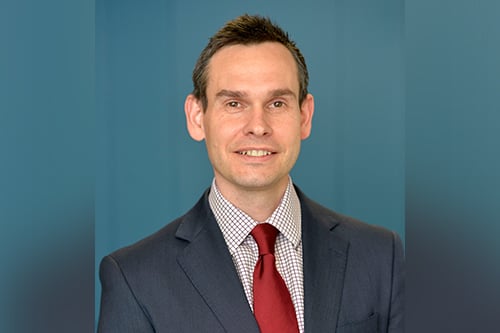

For Fenchurch Law, which was established in 2010 to counteract the lack of a specific provider of specialist law insurance disputes advice for policyholders, working shoulder to shoulder with the broking community has been built into the very fabric of the firm, according to managing partner, David Pryce.
“Right from the start, all we’ve done is coverage disputes for policyholders,” he said. “And because we’ve come from within the insurance market, we’ve always taken the view that, in a dispute context, the policyholder’s best friend is the insurance broker.”
Some of the firms’ competitors within the sector have taken the viewpoint that if an insurance policy has not paid out then either the insurer or the broker have made a mistake, Pryce said, and, not particularly caring which has made the error will sue both parties. He believes that this is a short-sighted approach as most policyholders are better served by having the broker on-side, even when the broker has not necessarily covered themselves in glory during the claims process.
“Because we work so much with brokers, we see ourselves having a real common interest with brokers in terms of getting the best outcomes for the policyholder and their claim situation,” he said. “And so our knowledge sharing process is primarily focused on the broker community rather than policyholders as a group.”
Educating insurance brokers about different coverage issues has always been a core pillar of the business development work that Fenchurch Law does, Pryce said. Being based in Lime Street, he outlined, it is easy for members of the firm to go out and speak to the claims or account handling team of an individual broker about market issues but this is harder to replicate in other parts of the UK due to the time and travel commitment required.
To reach these regions, he said, Fenchurch Law has developed a series of symposiums based on gathering groups of brokers from many different organisations together to avail of several talks over the course of an afternoon. At these symposiums, speakers from the firm’s five practice groups – professional risks, property risks, construction risks, financial and commercial risks, and products and environmental risks, discuss their areas of expertise and share their insights with the brokers present. Not every broker who takes part in these events will be a specialist in every one of these areas, Pryce said, so by covering an extensive range of subjects, they can ensure that there is something of interest to everyone in the audience.
The symposiums are offered in six cities throughout the UK including London, Bristol, Birmingham, Manchester, Leeds and Belfast. The London symposium might sound counter-intuitive, he said, but is intended for smaller brokers located in the south-east who find it easier to travel to London than an alternative. Offering expertise and support outside of the London market is an essential consideration for Fenchurch Law, Pryce said, due to the sheer amount of insurance activity taking place in the regions.
“It would be absolutely wrong to think that all high-quality technical brokers are based in London,” he said, “because that’s just not right. There are great quality brokers all across the UK and these brokers are really hungry for hearing from people like us on technical coverage issues. This is a huge audience that we feel really needs to be served.”
The feedback received from these symposiums has been extremely positive, Pryce said, as advice is always required in these areas. While avoiding disputes is one of the main focuses of these symposiums, he said, there are insurance disputes that simply can’t be avoided and, as such, giving brokers insight into the insurance law issues that can help them manage these disputes when they inevitably arise is also important.
COVID-19 is one of the most pressing macro factors as far as insurance claims are concerned at the moment, Pryce outlined, and this extends beyond business interruption and event cancellation to foreseeably impacting lots of different kinds of policies. For Fenchurch Law, the impact of the pandemic on its symposiums has already been felt with the cancellation of its Birmingham event, and the rescheduling of the London symposium.
Whether or not the remaining events will have to be postponed or rescheduled depends on government advice regarding the length of the shutdown, Pryce said, but he is confident that, whenever the symposiums do take place, they will be of great interest to the attending brokers.
“There’s going to be a lot of very interesting stuff for people to hear,” he said, “because it has just been such an unusual year.”
